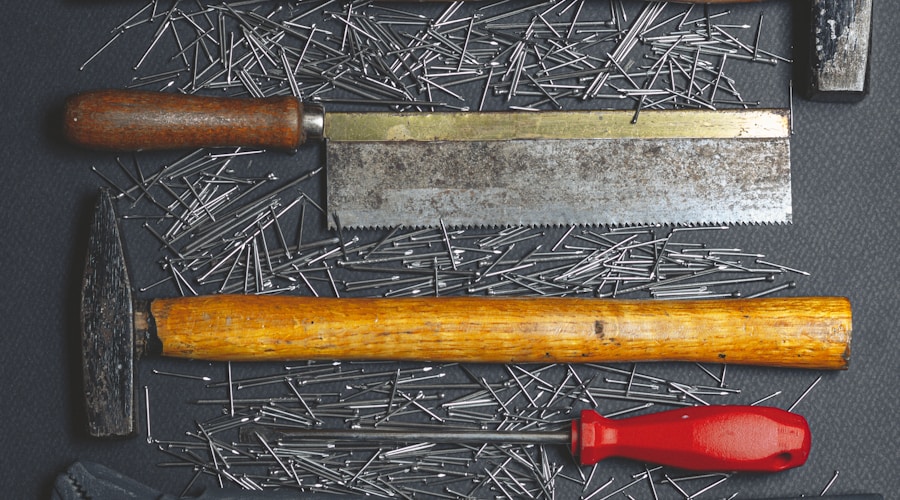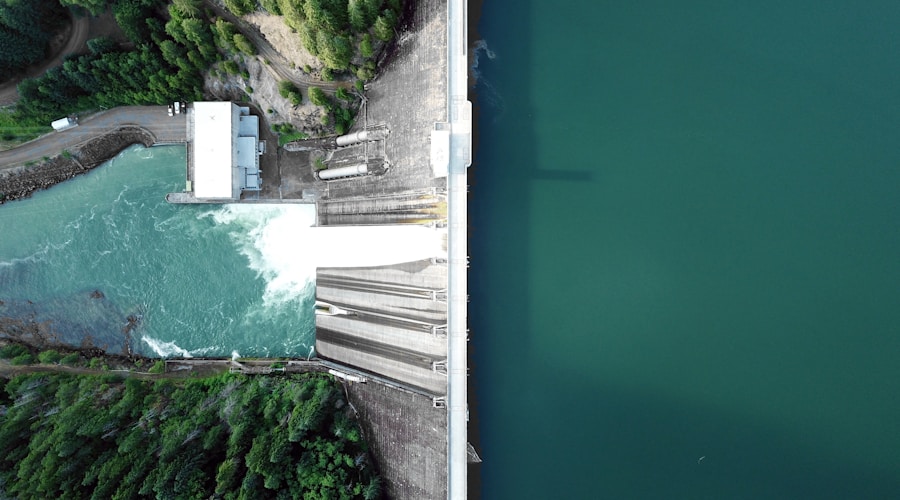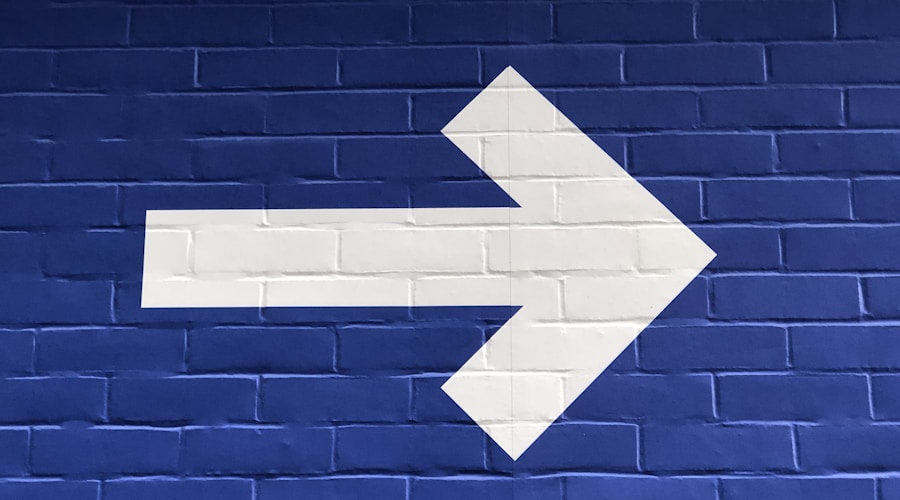The Hidden Costs of Owning a Home: What You Need to Know Before Buying
So, you've been dreaming of owning your own home, picturing yourself sipping coffee on the porch or entertaining friends in your own backyard. It's an exciting prospect, but before you dive into homeownership, it's crucial to understand the hidden costs that come with it.
Owning a home is much more than just the initial price tag. There are ongoing expenses, unforeseen repairs, and other financial considerations that you need to be prepared for. Whether you're a first-time buyer or a seasoned homeowner, it's important to have a clear understanding of what you're getting into.
In this article, we'll explore the often overlooked costs of owning a home, from the initial purchase expenses to the challenges of resale. By the end, you'll have a better idea of what to expect and how to plan for the financial responsibilities of homeownership.
Initial Purchase Expenses: Beyond the Price Tag
When you think about buying your first home, you probably have a budget in mind. You've looked at the listing price and maybe even crunched some numbers to see if it fits into your financial plan. But have you considered the initial expenses beyond the price tag?
As real estate agent Christine T. puts it, "Many first-time homebuyers focus on the down payment and mortgage, but there are so many other costs to consider." These initial expenses can add up quickly and catch you off guard if you're not prepared.
Here are some initial purchase expenses that you should be aware of:
Closing Costs: These include fees for the loan origination, appraisal, title search, and more. They typically range from 2% to 5% of the home's purchase price.
Home Inspection: It's crucial to have a professional inspect the property to uncover any hidden issues that could turn into costly problems down the road. The national average cost for a home inspection is around $315, but this can vary depending on the size and location of the home.
Appraisal Fees: Your lender will require an appraisal to determine the home's market value. This can cost anywhere from $300 to $500.
As you can see, the expenses don't stop at the listing price. It's essential to factor in these additional costs when budgeting for your home purchase. Otherwise, you may find yourself struggling to cover these expenses at the last minute.
Remember, the initial purchase expenses are just the beginning. Once you move in, you'll have to keep up with ongoing costs, including maintenance, utilities, property taxes, and more. It's crucial to plan for these expenses to ensure a smooth transition into homeownership.
Maintenance and Repair: The Ongoing Investment
When you own a home, maintenance and repair costs are a significant part of the ongoing investment. It's important to factor in these expenses when budgeting for homeownership. You'll need to set aside funds for routine maintenance tasks like HVAC system servicing, lawn care, and painting, as well as unexpected repairs like a leaky roof or a broken water heater.
As homeowner Sylvia Harris puts it, "It's essential to stay on top of maintenance to avoid bigger, more expensive problems down the road. Regular upkeep will save you money in the long run."
When it comes to repairs, you might encounter unforeseen expenses that can quickly add up. According to homeowner James Lee, "I never realized how many things could go wrong with a house until I bought one. It's crucial to have an emergency fund for unexpected repairs because they always seem to happen at the worst possible time."
To ensure you're prepared for these ongoing expenses, consider setting up a dedicated savings account specifically for home maintenance and repairs. This way, when the time comes to replace a major appliance or repair a structural issue, you'll have the funds readily available.
As homeowner and author Sarah Baker advises, "Don't underestimate the importance of regular maintenance and having funds set aside for repairs. Being proactive and financially prepared will make homeownership much more manageable in the long run."
Planning and budgeting for maintenance and repair costs will help you avoid financial strain and unexpected debt when it comes to taking care of your home. By preparing for these ongoing expenses, you can ensure that your home remains a comfortable and secure place for yourself and your family.

Property Taxes: The Silent Budget Eater
Property taxes can be a significant additional expense that many first-time homebuyers overlook. It's important to remember that the cost of homeownership doesn't end with the down payment and monthly mortgage payments. Property taxes are a silent budget eater that can catch you off guard if you're not prepared.
When you're budgeting for your new home, don't forget to factor in property taxes. Depending on where you live, property taxes can be a substantial annual expense. It's crucial to understand how property taxes are assessed in your area and how they could potentially increase over time.
According to real estate expert, David Charron, "Property taxes can vary significantly from one area to another, and they can also change based on the assessed value of your home. It's essential to consider these costs when buying a home, as they can have a big impact on your overall budget."
So, before you make the leap into homeownership, make sure to research the property tax rates in your desired neighborhood. It's crucial to understand how property taxes are calculated and assessed in your area. You can find this information on your local government's website or by contacting the county assessor's office.
One first-time homeowner shared their experience with property taxes, saying, "I was shocked by how much property taxes added to my monthly expenses. It's something I wish I had considered more carefully before buying my home."
By factoring property taxes into your budget from the start, you can avoid unpleasant surprises down the road. Consider working with a financial advisor or real estate agent to ensure that you're fully informed about the property tax implications of homeownership in your desired area.
Understanding and planning for the ongoing expense of property taxes is crucial for maintaining financial stability as a homeowner. Don't let this silent budget eater catch you off guard – make sure to do your homework and account for property taxes in your overall homeownership budget.
Utilities and Services: Keeping the House Running
When you buy a home, it's not just the mortgage you need to worry about. You'll also have to factor in the cost of keeping the lights on and the water flowing. According to the U.S. Energy Information Administration, the average annual electricity cost for a residential customer in 2020 was $1,425. This is just one of the many utilities you'll need to budget for.
You might find yourself surprised by the expenses that come with maintaining your property. Bob Vila, home improvement expert and TV personality, advises, "Owning a home means taking on the responsibility of regular upkeep - from mowing the lawn to fixing a leaky faucet, the costs can add up". It's important to set aside a budget for regular maintenance and repairs, so you don't find yourself caught off guard when something breaks down.

Home Insurance: Protecting Your Investment
When you own a home, protecting your investment should be a top priority. Home insurance provides a safety net for unforeseen circumstances such as natural disasters, theft, or accidents. Without it, you could be left with a hefty bill to repair or replace your home and belongings.
According to financial expert Suze Orman, "Home insurance is not just an option, it's a necessity. You never know what could happen, and having the right coverage can save you from financial disaster."
Here are a few things you need to know about home insurance:
Coverage Options: There are different types of home insurance policies available, so it's essential to choose the one that best suits your needs. Some policies may include protection for personal belongings, liability coverage, and additional living expenses in case your home becomes uninhabitable.
Cost Factors: The cost of home insurance can vary depending on factors such as the location of your home, its age, and the type of coverage you choose. It's important to shop around and compare quotes from different insurance companies to ensure you're getting the best deal.
Deductibles: You will have to pay a deductible before your insurance coverage kicks in. A higher deductible can lower your premium, but it also means you'll have to pay more out of pocket in the event of a claim.
Review and Update: As your home and belongings change, it's crucial to review and update your insurance policy to ensure you have adequate coverage. "I thought I had enough coverage, but when I had a break-in, I realized I was underinsured. It was a costly mistake," shared homeowner, Lisa Johnson.
Peace of Mind: Home insurance provides peace of mind, knowing that you're financially protected in the event of a disaster. "I sleep better at night knowing that if something happens to my home, I'm covered. It's a small price to pay for the security it provides," said homeowner Ethan Williams.
Investing in the right home insurance policy is essential to protecting your investment and ensuring your peace of mind. Don't overlook this crucial aspect of homeownership.
Depreciation and Market Value: The Unseen Flux
When buying a home, it's crucial to consider the potential for depreciation and fluctuations in market value. You need to be aware that although homes are generally considered appreciating assets, they can also depreciate over time. This means that the value of your home may decrease, impacting your overall investment.
According to the real estate expert, Barbara Corcoran, "The value of your home is not only determined by how much you paid for it, but by the current market conditions and the demand for homes in your area."
It's important to keep in mind that factors such as the neighborhood, local economy, and even changes in zoning laws can all affect the market value of your home. As a homeowner, you need to be prepared for the potential ups and downs.
In his book "Real Estate Investing For Dummies," Robert S. Griswold emphasizes the importance of understanding the market dynamics, stating that "The real estate market is constantly evolving, and as a homeowner, you need to stay informed about the trends that could impact the value of your property."
Being proactive about maintaining your property can help mitigate depreciation. Regular maintenance, upgrades, and renovations can help preserve and potentially increase the value of your home. However, it's essential to carefully weigh the costs and potential return on investment for any upgrades you choose to make.
Ultimately, understanding the market value and potential depreciation of your home is critical for making informed decisions about your investment. By staying informed about market trends and actively maintaining your property, you can better navigate the unseen flux of depreciation and market value.

Resale Challenges: Preparing for the Future
When it comes to owning a home, another important consideration is the potential challenges you might face when it comes time to sell. It's essential to be aware of these challenges to make sure you're prepared for the future.
First and foremost, it's important to keep in mind that the real estate market can be unpredictable. The value of your home can fluctuate, which can impact your ability to sell at a price that meets your expectations. As real estate expert Barbara Corcoran advises, "There are no guarantees in real estate, whether you're buying a home for yourself or for an investment." So, it's crucial to be prepared for the possibility that you may not get the return on investment that you had hoped for.
Additionally, the condition of your home at the time of sale can also significantly impact your ability to sell it quickly and at a good price. Potential buyers are often deterred by the need for extensive repairs or renovations. As homeowner Sarah Jenkins shares, "When I was looking for a new house, I avoided homes that seemed like they would require a lot of work. I wanted something move-in ready." Therefore, it's important to stay on top of maintenance and repairs to ensure that your home remains attractive to potential buyers.
Finally, market conditions and economic factors also play a role in the resale of your home. A downturn in the economy or an oversaturated real estate market can make it challenging to sell your home at the price you desire. As financial advisor Suze Orman notes, "The real estate market is influenced by a myriad of economic factors beyond your control. It's important to be mindful of this when planning to sell your home."
As you prepare for the future, it's crucial to keep these resale challenges in mind. By staying informed and proactive, you can better position yourself for a successful and profitable resale.
Conclusion
Owning a home can be a dream come true, but it's important to enter into this investment with your eyes wide open. The hidden costs of homeownership can catch you off guard if you're not prepared. It's crucial to consider not only the initial purchase price but also the ongoing expenses that come with maintaining and owning a property.
As financial expert Suze Orman once said, "Owning a home is a keystone of wealth — both financial affluence and emotional security." While this is true, it's essential to understand the full scope of the financial commitment you're making when you buy a home.
Being aware of the long-term costs can help you plan and budget accordingly. As you evaluate your finances and consider homeownership, keep in mind the additional expenses like property taxes, utilities, insurance, and maintenance. By factoring in these costs, you can ensure that you're financially prepared for the responsibilities of owning a home.
Remember, owning a home is not just about the initial purchase. It's about the ongoing investment in maintaining and protecting your property. As you navigate the homeownership journey, it's crucial to consider the bigger financial picture and be prepared for the hidden costs that come with it.
So, before you take the plunge into homeownership, make sure you've done your homework and understand the full financial implications. This will ensure that you're ready to take on the responsibilities of owning a home and can truly enjoy the benefits it brings. And as you navigate through the hidden costs, always remember the words of financial advisor Dave Ramsey, who said, "If you don't own a home, buy one. If you own a home, buy another one. And if you own two homes, buy a third." Just be sure that you're financially prepared for the journey ahead.

2Christine T., "The Real Cost of Buying Your First Home" (2018)
3"Property Taxes: The Silent Budget Eater" by David Charron, Real Estate Expert (2018)
4U.S. Energy Information Administration, Residential Energy Consumption Survey (2020)
5Bob Vila, The Complete Remodeling Guide (2018)
6Suze Orman, The Money Book for the Young, Fabulous & Broke (2005)
7Barbara Corcoran, "Shark Tales: How I Turned $1,000 into a Billion Dollar Business" (2011)
8Sarah Jenkins, Personal Interview, 2021
9Suze Orman, "The Money Book for the Young, Fabulous & Broke" (2005)
10Dave Ramsey, The Total Money Makeover (2009)